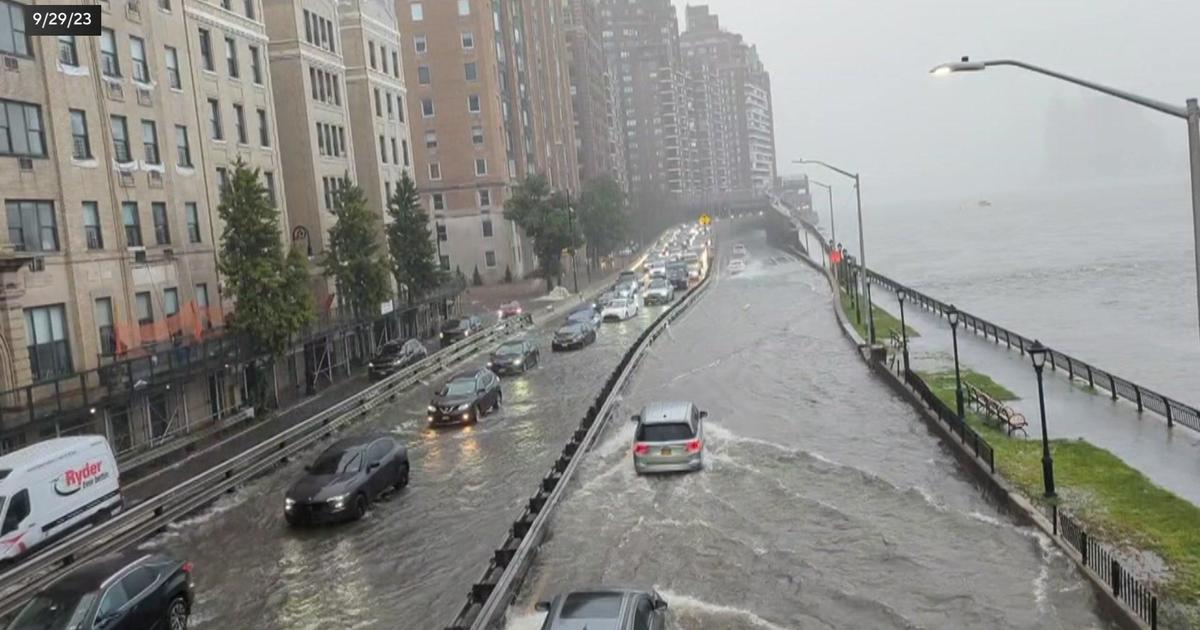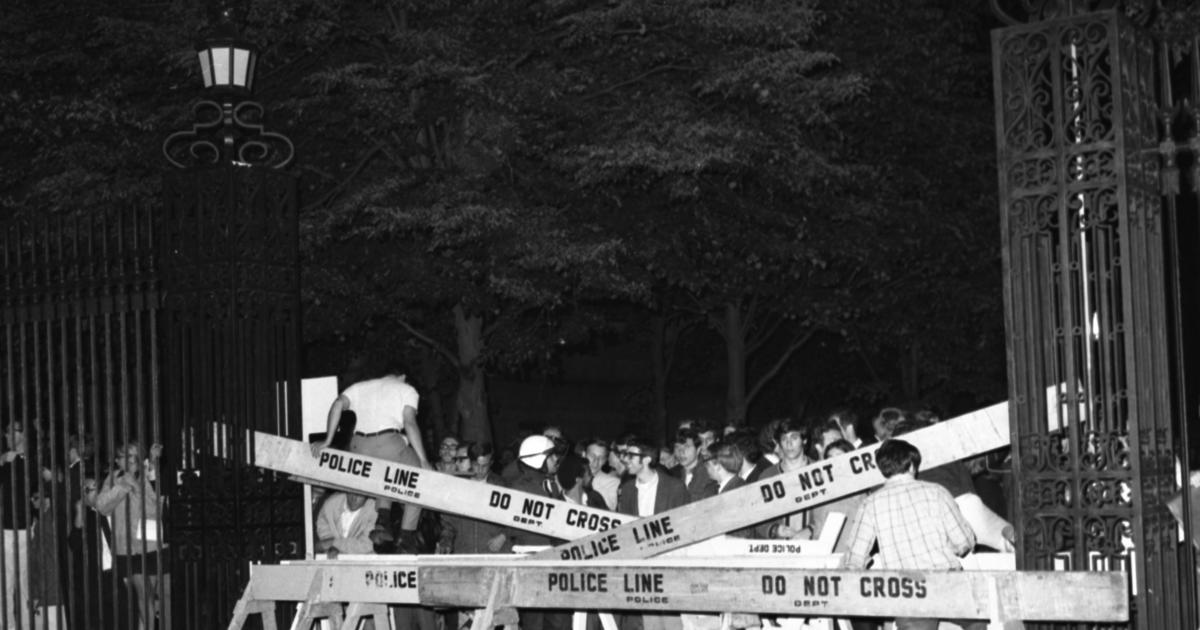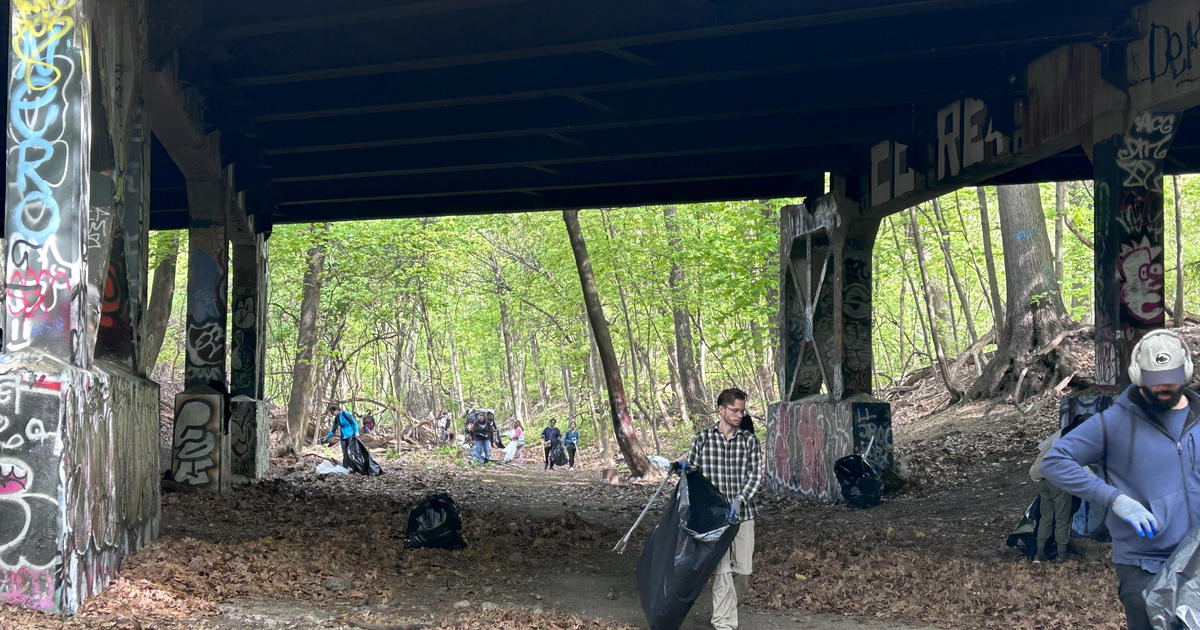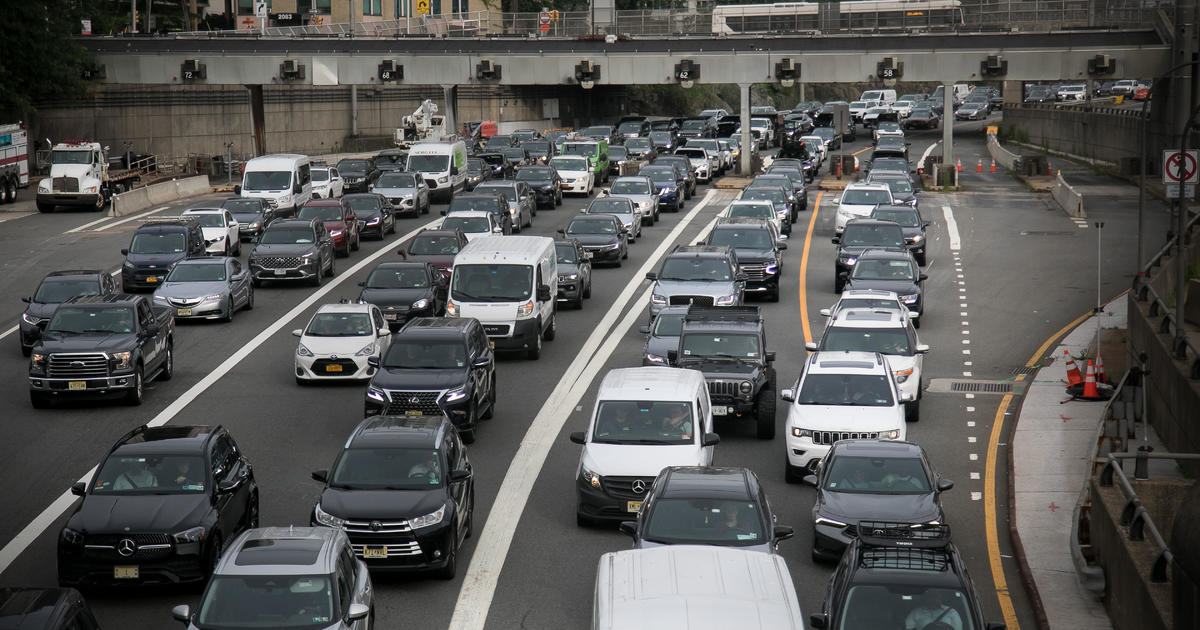Candidate Conversations: Dianne Morales
NEW YORK (CBSNewYork) - CBS2 is holding in-depth conversations with the 2021 New York City mayoral candidates.
We are asking each of them the same questions, so you can compare.
The order was chosen at random.
Here's Marcia Kramer's interview with Democrat Dianne Morales.
Marcia Kramer: From ending gun violence to recovery from the pandemic, the next mayor of New York City will have a lot on their plate. We are speaking with each candidate and an in depth conversation to see where they stand. We're asking each candidate the same questions. So you can compare. Joining me now is candidate Dianne Morales. Dianne, thank you very much for joining us. And so our first question today is this: Should you get elected, what would be your top three priorities on day one?
Dianne Morales: Sure. So, I have committed to several things. One is the idea of divesting from policing and investing in our communities. We actually know and need to recognize that the things that actually result in creating safe communities are actually a robust sort of opportunity and access to services, programs and resources. And so we need to actually build back safe communities by investing in those things that we've divested from for too long.
I also believe that we need to recognize the inextricable link between access to housing and public health and public safety. And so I have committed to actually guaranteeing housing for all, addressing both the homelessness issues, as well as the ongoing and growing housing insecurity issues that have been exacerbated as a result of the pandemic.
And then I think, you know, certainly not last, but, but in answer to your question, I think we've got to commit to making sure that we keep everyone safe. So that makes, that means that in response to this COVID situation, ensuring that our communities that have not had access, or that have had difficulty accessing the vaccine, get access to the vaccine, as we begin to build what I refer to as a new economy for our city so that we can grow back stronger than ever before.
Kramer: So how would you guarantee housing for all? Who would pay for it?
Morales: Well, you know, I think we actually invest quite a bit in housing right now, in New York City. The problem is that the way that we do that actually tends to prioritize developers and profits for developers, where they're getting significant tax subsidies or tax rebates, while we're getting a really small fraction of a return on our investment in terms of units that are truly affordable to most New Yorkers. We actually need to reinvest those dollars that we historically provide to those developers. By focusing on community first, prioritizing community-led processes, and nonprofit affordable housing developers,
I also think there's plenty of room for us to look at existing vacant spaces that could be converted to provide housing, whether that's hotel rooms, or commercial storefronts, or even office spaces, so that we could begin actually transitioning those spaces into providing housing for everybody now.
Kramer:- So Dianne, how do you square reducing the size of the police budget, which the city has already done to the tune of a billion dollars, with the need to keep the city safe and to end gun violence?
Morales: So I think the first thing I would do is to push back a little bit on the idea that the city has in fact reduced the police budget by a billion dollars. I think moving a line from one office to another while maintaining the the actual police force is not the same thing as as significantly reducing the funding.
The other thing we've seen is that we have not reduced the number of police officers on the street. And at the same time, violence has increased. So there is not a correlation actually between the size of the police force and the ability to keep our community safe.
The other thing is, we know that our communities that are most heavily policed are the ones that are also most harmed by police. So what we need to do is reclaim the definition of public safety. The definition of public safety is, is essentially, as I referenced before, it's communities that have access to a lot of resources. We need to prioritize providing people with, with housing, providing people with access to jobs, providing people with health care, particularly in the midst of a pandemic. The increase in violence cannot be decoupled from the dramatic increase in insecurity that so many New Yorkers have experienced over the course of the last year, as they struggled to figure out how to put food on the table, struggled to figure out how they were going to pay their rent, and actually not had access to health care in the middle of a global pandemic.
Kramer: So you would cut the police department budget more if you got elected?
Morales: Yes. I, actually, I have been the only candidate to call for defunding the police by $3 billion. I think that those dollars need to be invested in the types of services and programs that I referenced in terms of keeping our police, keeping our communities safe.
The other thing is, you know, we know that the NYPD doesn't prevent crime, they're supposed to respond to crime. And even so, a large percentage of the calls that they respond to are not crimes in progress. They're issues of homelessness, of mental health, of substance abuse. And so I've actually called for the creation of a "Community First Responders Department."
Our responses need to be proportionate and responsive to the actual crisis at hand. So the Community First Responders Department would be staffed by people who are trained and skilled at intervention and de-escalation, and who also serve as part of a larger ecosystem of services: Human service providers, medical centers, mental health professionals. So that we could actually intervene in a crisis and connect people to the services that are going to help break the cycle, rather than what happens right now, which is we send a man with a gun. In the best case scenario, that person is locked up overnight, and released back the next day, back into the very same situation. And in the worst case scenario, that person is harmed or shot and killed.
We need to actually change and transform the way we're responding to the issues that are really making our communities suffer and provide our communities with the help that they need to begin to move forward in a different kind of way.
Kramer: Would you take that $3 billion from the NYPD budget and move it over to the Community Responders Department? And what effect would that have on the uniform count in the NYPD?
Morales: Sure. So I think, you know, I would use part of that money to establish the Community First Responders Department. We also have to provide - I've also called for removing police from school. So we need to provide our students in our schools with the services that they need: Nurses, career counselors, youth development specialists, mental health specialists. Those need to be a part of what we provide to our students so that they can actually learn and thrive in the education system.
And then I've also called for the Community First Responders Department to serve as part of a larger ecosystem of service providers here in New York City. So a significant part of those dollars would have to also go to those providers so that we can make sure that they're able to provide the services that are needed, whether that be mental health or housing placement or substance abuse treatment. And that to me is the human services sector and the community-based organizations that for so long we've relied on to address these issues while really not reimbursing them at the rates that they deserve.
Kramer: So how many fewer cops do you think that you would see under Morales administration?
Morales: Yeah, you know, I - it's hard to put a number on that. I think there's a lot of other types of expenses that we need to prioritize first. And some what I would refer to as low hanging fruit, whether we're talking about it in terms of overhead, or whether we're talking about it in terms of this $73,000 robo-dogs that we're investing in, and the militarization of our police department. There is a lot of fat to be trimmed there. And I would look to those things first before looking at personnel, but certainly not not averse to looking at personnel who need to be reduced in order to get to the $3 billion number.
Kramer: So Alexandria Ocasio-Cortez has made cutting the police department budget by $3 billion a prerequisite for her endorsement. You seem to agree with her on cutting $3 billion. Would you want her endorsement in this campaign?
Morales: Sure. I, you know - full disclosure - I was a supporter of Alex, in her first run, and as well as her second run, in terms of, you know, hosting fundraisers and whatnot. I believed in her before it became cool. So I would welcome her support of this campaign. If that is something that, that seems to make sense. I think there's a lot of alignment. And I would, I would welcome her support.
Kramer: So the police commissioner argues that bail reform has to be changed, so that judges feel that they have the power to keep people who are involved in serious crimes, hate crimes, violent crimes, and set bail for them. I wonder if you agree with his assessment?
Morales: Listen, I think, you know, ultimately, I believe that the criminal legal system is deeply embedded in racist practices. Whether that be, you know, obvious or or subtle, or conscious or subconscious. We really need to work to dismantle the systems and structures that disproportionately harmed Black and Brown residents, and we know that the bail issue has disproportionately impacted Black and Brown, low income, poor people. And so until we can actually address that in a way that really ensures and guarantees equity and justice for all, I think we need to move away from those practices. And I don't think that judges are exempt from internalized racist practices. So I don't think that that is something that is going to serve the majority of New York City communities well.
Kramer: So the number of homeless New Yorkers, it seems to be out of control. I wonder what your answer is, and if you think that shelters should be put in neighborhoods where the residents don't want them?
Morales: So actually, you know, I actually believe we need to move away from the shelter industrial complex. We know that it's not, that many of the shelters are not safe, that, you know, homeless folks don't feel safe there, which is why it is that they so often, so many of them opt for the streets, as opposed to being in shelter. And as a former operator of several shelters in the South Bronx, I can tell you that I struggled with the system and the Department of Homeless Services many years, as I wanted to try to provide services to support people's long-term ability not just to obtain housing, but to maintain housing. And the funding did not allow for that. So I really think that we need to gradually move away from the shelter based system and prioritize the ability to provide permanent affordable housing for everyone, and provide them with the supportive services that they need in order to be able to stay in that housing and live in dignity.
Kramer: So, next question, people who send their kids to charter schools really love them. I wonder how you feel about that, but also what you would do to deal with private Jewish schools that some say often don't provide the secular education that is needed in the world today? Your positions on those?
Morales: Sure. I think, you know, I totally understand why so many New York City parents actually choose the charter school option for their children. Our public school system is not serving our children well. So my goal and my priority would actually be to build an "A" quality public school system that is the premier system in the country and in the in the world. So that every family would want to, and would be proud to send their children to the public school system. But I certainly understand that we're not there right now. And that is what is driving a lot of families' decisions.
In so far as the Jewish schools, you know, I think that we have a responsibility to make sure that every student, no matter what their background, culture, or religion is, has access to all of the basic, you know, requirements from an educational perspective. So I would certainly work to make sure that that is happening no matter where a student goes to school.
Kramer: So what measures would you put in place to make sure there's no sexual harassment in your administration?
Morales: You know, I think we need to make sure that women are protected, that women are heard. You know, making sure that there are swift consequences and investigations. I think that the culture right now that leans towards, you know, character assassination, andthat sort of deep investigation of survivors, or women who have the courage to step forward, is highly problematic, and has significantly contributed to women's fears about stepping forth. As a survivor myself, I can tell you that, you know, I did step forward. And the response that I got in reaction to that was completely discouraging and disheartening, disappointing and demoralizing. We need to make sure that women feel protected and heard and validated when they when they are able to exercise the courage to step forward so that we can move towards preventing this culture altogether.
Kramer: So with ranked choice voting, who would you recommend to your supporters to pick as number two?
Morales: So I get this question a lot. You know, I, one of the things that's been really great and interesting about this race that is so filled with a lot of strong contenders, is that I've been able to, over the months, listen and see as some of my opponents in this race, move a little bit closer to some of my positions around certain things. There's a lot of daylight between me and everybody else in this race in terms of our vision for New York City and what we believe is possible and what we're advocating for. That being said, I'm really looking forward to see how many of them continue to drift a little bit more close to my positions on certain things before I make a decision or make a recommendation as to who my supporters should rank number two.
Kramer: The reason I asked the question is I remember an earlier press conference where you and Scott Stringer stood together and said you would support each other for one and two. I wonder if you've changed your mind on that?
Morales: Yeah. So actually, that's not what really happened. Boy have I learned a lot about the press. So you know, he actually said he did not want me to be mayor. And I jokingly said, yeah, he's my number two. And that got conflated in all sorts of different ways. But we never, we never sort of cross ranked each other in that way. And that's definitely not changing now.
Kramer: So we're coming to the part of our broadcast that we'd like to call "in one word." So I'm going to ask you some questions. And then what? Answer in one word, believe it or not. So what do you consider, what do you consider your best leadership quality?
Morales: Integrity.
Kramer: In one word, friends and family would describe you as?
Morales: Determined.
Kramer: What's your favorite comfort food?
Morales: Ice cream. Chocolate.
Kramer: What is a unique skill, or quality or talent that you have?
Morales: Leadership.
Kramer: And last but not least, you like to do this when you're faced with a difficult situation?
Morales: I like to breathe deeply when I'm faced with a difficult situation.
Kramer: Good answer. Dianne, thank you very much for joining us today.
Morales: Thank you so much for having me. It's been a pleasure.
You can watch our New York City mayoral debate with leading contenders on CBSN New York and on CBS2 hosted by Kramer and Maurice Dubois on Thursday, June 10 at 7 p.m.



